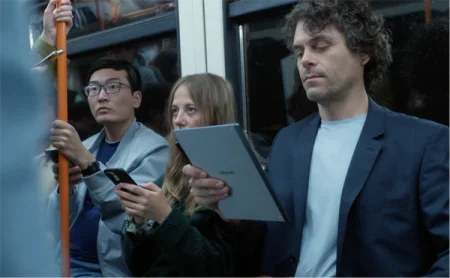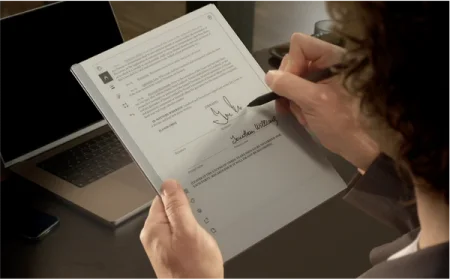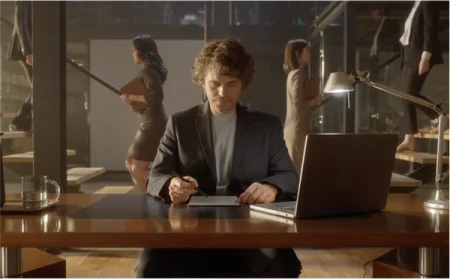Reach and stay in the flow zone
What you need to know about stopping time, reaching the ultimate state of immersion, and how your reMarkable paper tablet fits in the equation.

Flow: the state of mind that arrives when you’re deeply engaged by something, as if time has stopped, and nothing matters except what you’re doing. Sounds good, doesn’t it? So how can we make it happen more often?
What is flow?
It’s impossible to broach the topic of flow without mentioning the man who coined the term, the father of flow, University of Chicago psychologist Mihaly “Mike C” Csikszentmihalyi.
Csikszentmihalyi co-founded the branch of psychology known as “positive psychology,” which emphasizes happiness and well-being. Compare it to clinical psychology, for example, which is closer to the study of mental illness. In some ways, Csikszentmihalyi was arguably unique for his exploration of human potential.
“A person can make himself happy, or miserable, regardless of what is actually happening ‘outside,’ just by changing the contents of consciousness.”
– Mihaly Csikszentmihalyi
Like meditation, flow is a concept that is surging in popularity, has research behind it, and is recognized by researchers as a distinct mental state. To reach the “flow zone,” you need to be doing something difficult enough to challenge you, and at the same time be applying just enough skill to match it.
But why exactly is achieving flow such a sought-after experience? Aside from it feeling good, psychologists have discovered a collection of other benefits, including improved emotional regulation, increased fulfillment and happiness, increases in performance, and improved learning, creativity, and skill development.

How can I find flow with reMarkable?
Achieving flow is more about doing the right things to create an environment in which flow is likely to occur than following a step-by-step list of instructions. Nevertheless, here’s how it’s done according to Csikszentmihalyi:
Have clear goals
A chess player in a game of chess is working within a specific framework with a specific set of rules. Moving your work over to your paper tablet, for example, where the workspace is simpler and the borders more clearly defined, can help keep your direction clear.
Read more: Reach your goals with planners
Eliminate distractions
It’s hard to get in the right headspace when incoming texts or emails can redirect your train of thought in a counterproductive manner. This is why reMarkable was designed with thinking and focus as a priority.
Keep it challenging
The tougher the challenge, the more skill you need to apply, and the more likely it will be that you’ll achieve flow. Sitting down with your paper tablet and a tough problem to solve or visualize is the sort of combination conducive to finding flow.
Read more: 5 ways to sharpen your focus
Be in your element
If you’re working on something you enjoy, something within your area of expertise, the whole thing will be easier. So choose something you find interesting, or learn how to find the joy in what’s in front of you.
Practice meditation and mindfulness
Focusing on the moment can help you find flow. A good example could be the tactile nature of handwriting, which slows you down a bit and really engages your mind as you write.
Read more: 7 tips for getting back into writing longhand

How do I stay in the flow zone?
The more you are in flow, the improvement in performance and learning you get will mean your skill level will undoubtedly grow. The risk, then, is that things get too easy, and you fall into apathy.
To keep things going, and continue finding flow in your work and life, it’s worth thinking about striking and holding the right balance between difficulty and skill. On a practical level, it means at times going away and learning new skills, or upping the difficulty by reaching for newer challenges or trying to crack even tougher problems.
“If challenges are too low, one gets back to flow by increasing them. If challenges are too great, one can return to the flow state by learning new skills.”
– Mihaly Csikszentmihalyi
Where might I land?
The day-to-day reality of healthy doses of flow for the typical knowledge worker involves significant blocks of in-depth focused work in which it feels like time has stopped. This could be getting lost in the micro challenges of long-form report writing, solving a scheduling issue with a visual diagram, putting a presentation together and jotting down extra thoughts, or creating a detailed marketing plan, for example — simply enjoying the experience of applying your craft.
This enjoyment of the challenges, nuances, and developments involved in the task at hand is key to a resulting feeling of well-being and accomplishment at the end of the day.
Csikszentmihalyi also called flow “order in consciousness.” Put simply: harmony. Not a bad landing spot at all.
Read more about reMarkable Paper Pro.


